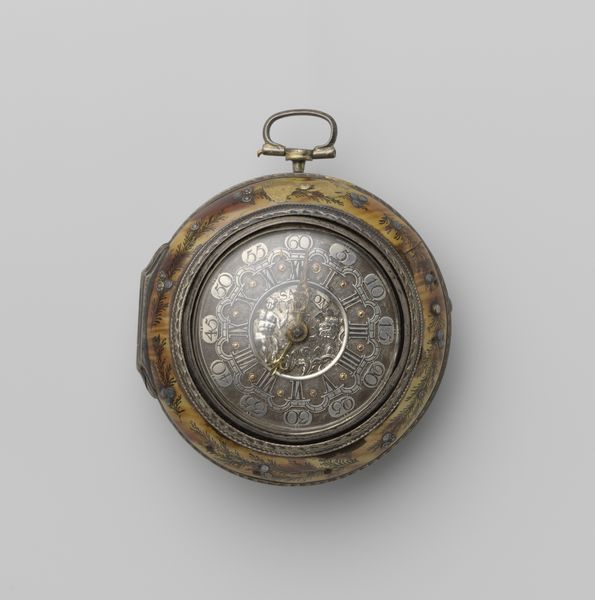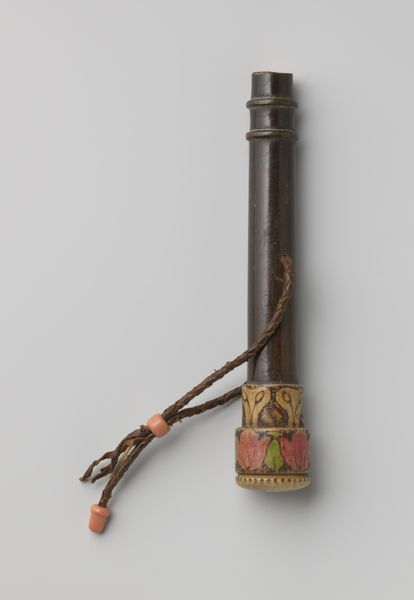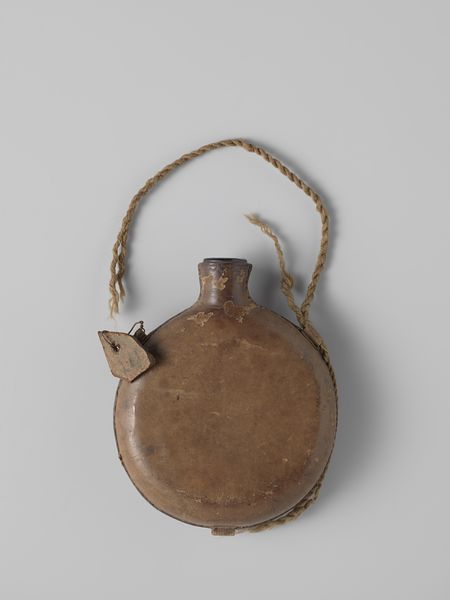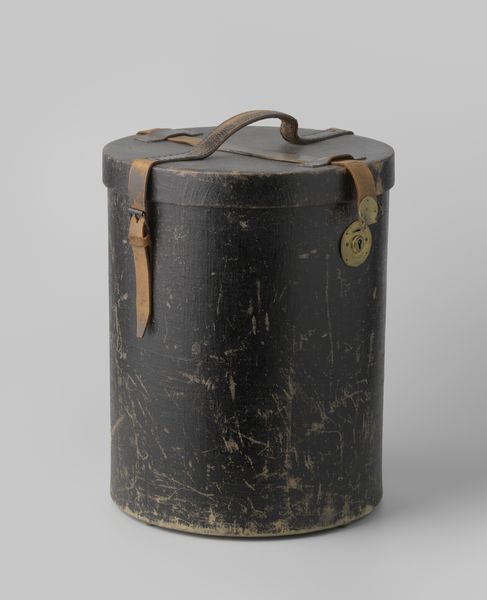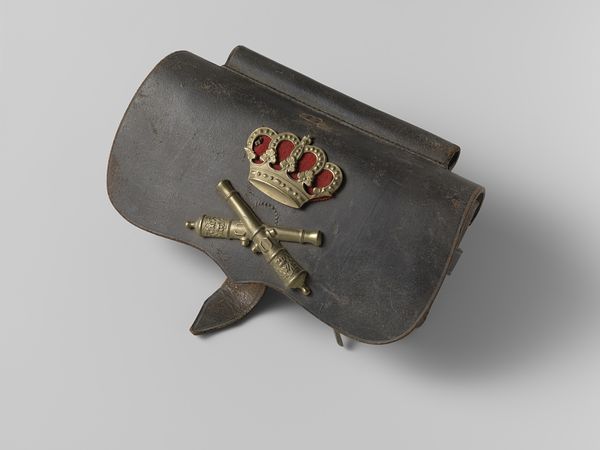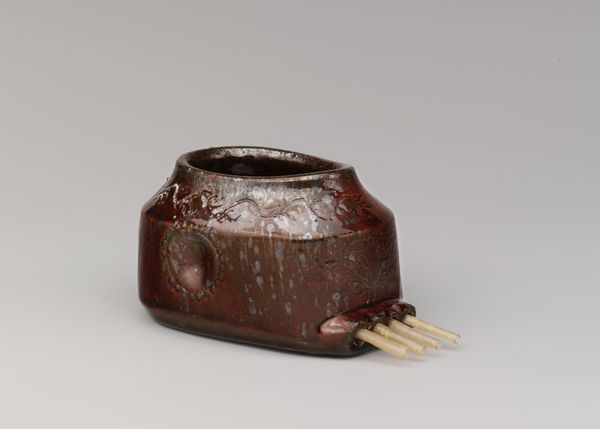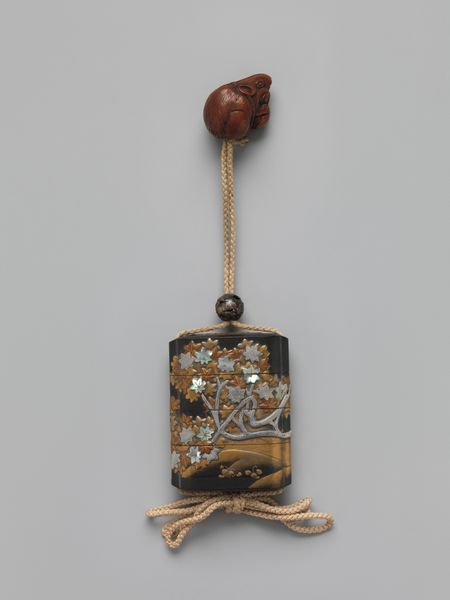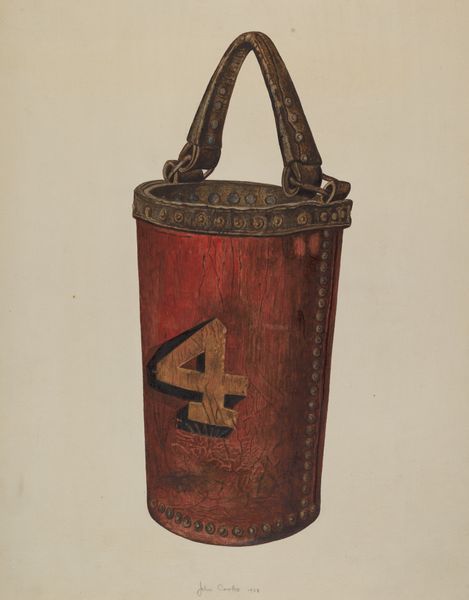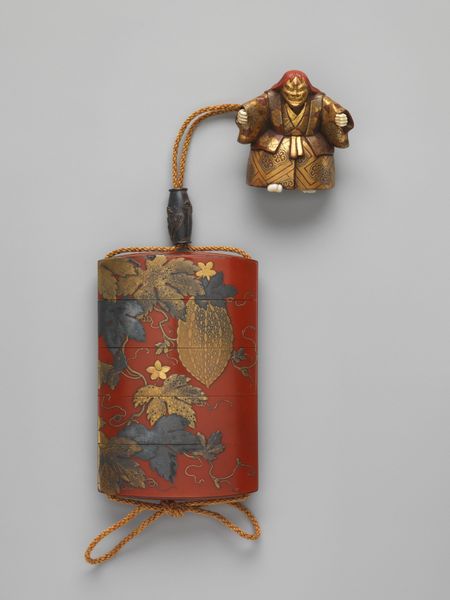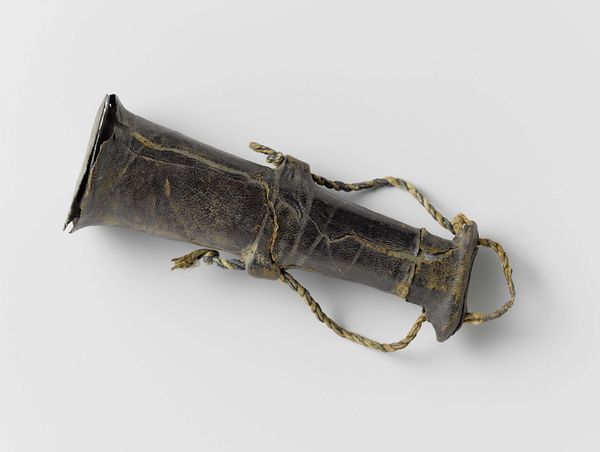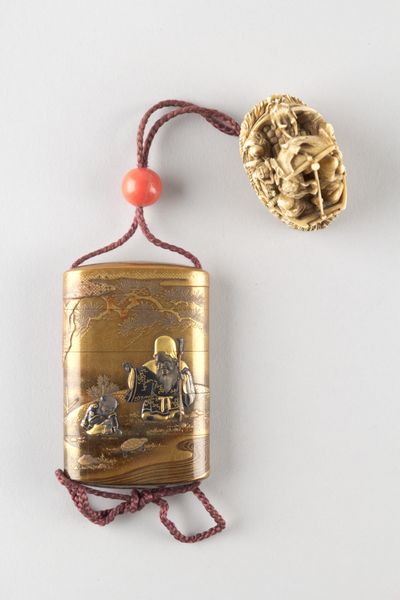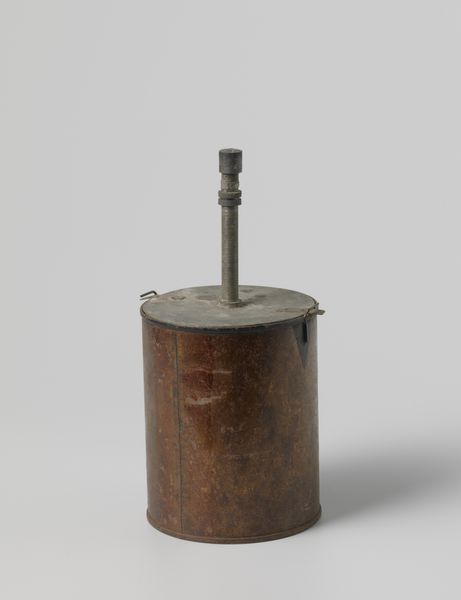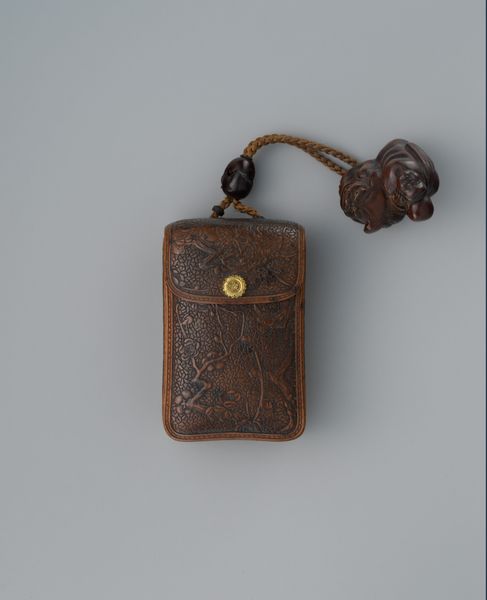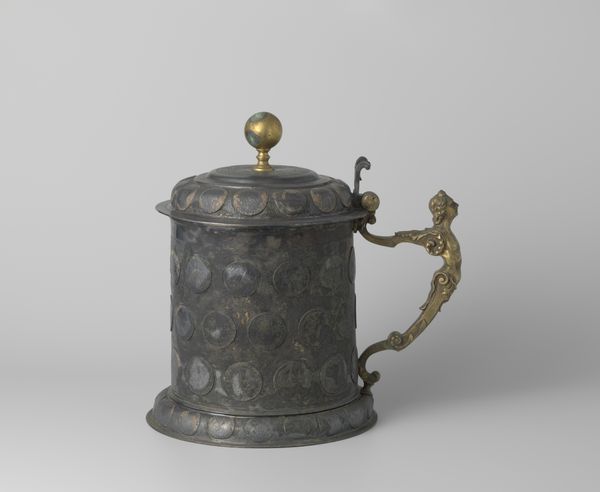
wood
#
asian-art
#
stoneware
#
wood
#
decorative-art
#
miniature
#
erotic-art
Dimensions: height 9.7 cm, width 8.8 cm, depth 5.1 cm, length 23 cm
Copyright: Rijks Museum: Open Domain
This tobacco box was crafted by Ritsuô, a versatile artist who lived between the 17th and 18th centuries in Japan. The box is not merely a functional object, but an expression of identity and social status in Edo period Japan. During this time, tobacco use was widespread across different social classes. However, accessories like this box became symbols of refinement and taste, particularly among the merchant classes who were rising in affluence and sought to emulate samurai culture. The fish attached to the box may represent resilience and transformation. Ritsuô’s decision to adorn the box with such imagery suggests a personal connection to themes of growth and perseverance. The box transcends its utilitarian purpose, becoming a narrative of personal identity and aspiration in a changing society. It evokes questions about how individuals use art to express themselves.
Comments
rijksmuseum over 2 years ago
⋮
Depicted on this portable tobacco box, is the ghost of the servant Okiku. She accidentally broke a set of costly plates for which her master imprisoned her. Okiku managed to escape and threw herself in a well, in which she drowned. Here her ghost rises up out of the well. The chrysanthemums (kiku) refer to her name.
Join the conversation
Join millions of artists and users on Artera today and experience the ultimate creative platform.
